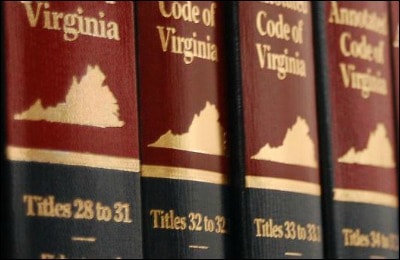 If you have been accused of domestic violence, you should be aware that the issuance of a civil protective order order can, and very well may, affect your right to purchase, possess or transport a firearm in Virginia.
If you have been accused of domestic violence, you should be aware that the issuance of a civil protective order order can, and very well may, affect your right to purchase, possess or transport a firearm in Virginia.
Federal Law Regarding Firearms and Domestic Violence
The best known restriction is found in federal law, which prohibits you from possessing, shipping, transporting, or receiving any firearm, if four conditions are met:
- a protective order has been issued against you.
- the protective order pertains to your “intimate partner” or the child of such “intimate partner.” The term “intimate partner” is defined to include a spouse, former spouse, person with whom you have a child or have cohabited, but not a girlfriend or boyfriend with whom you have not cohabited.
- the protective order was issued after an evidentiary hearing, and you had notice and an opportunity to participate in the hearing. Whether or not you actually attended the hearing is irrelevant. However, this requirement generally excludes temporary orders, which are typically issued without notice.
- the order is more than a simple “no contact” order. That is, the protective order must find that you are a credible threat to the alleged victim’s physical safety; or, the order must prohibit the use, attempted use, or threatened use of physical force against the alleged victim.
The federal prohibition stays in place for the duration of the protection order.
The prohibition under federal law is especially broad. It not only prevents you from carrying a firearm on your person, but generally requires that you remove any firearms from your residence, vehicle, or any other place to which you have access and over which you can exercise control. This latter form of possession is known as “constructive possession,” and is equally prohibited under the federal prohibition.
There is an exception to the federal law that applies to firearms issued by state or federal governments for use by individuals in their official capacity. These firearms are not subject to the the federal prohibition. The exception protects law enforcement or military personnel, who may carry their employer-issued firearms whether they are on or off duty. Please keep in mind, however, that the exception does not apply to any personal firearms of law enforcement or military personnel. Nor does the exception apply in the event an individual is prohibited from carrying a firearm under state law.
State Law Regarding Firearms and Domestic Violence
Virginia law provides a separate set of restrictions, which can be both more and less strict than the federal law depending on your circumstances. Under current Virginia law, it is unlawful for a person who is subject to a protective order to purchase or transport a firearm. In addition, such individuals lose their right to carry a concealed weapon.
The Virginia prohibition regarding guns in cases of domestic violence differs from the federal prohibition in three important ways:
- the Virginia prohibition applies to any protective order authorized under Virginia law. The order does not have to relate to an “intimate partner;” the restrictions apply whether or not you had notice of the hearing; and the restrictions apply even to “no contact” orders, so long as same are issued pursuant to one of Virginia’s protective order statutes.
- the Virginia law does not prohibit possession of a firearm, only the purchase or transport of same. This means, in effect, that you may keep your firearms in your home. You are simply not permitted to carry a firearm on your person or to move it from one place to another by any other means. If you keep a firearm in your motor vehicle, you should remove it and store the firearm in a safe place.
- the Virginia prohibition does not contain an official-use exemption for law enforcement or military personnel. If you are served with a protective order, you will be prohibited from carrying your employer-issued firearm, even if you are required to carry it in order to do your job.
What You Should Do If You Have Firearms and Receive a Protective Order
In the event you are served with a protective order, I recommend a two-step process. First, you should make sure that you comply with applicable laws by not carrying a firearm on your person until such time as you are able to obtain legal counsel. Second, you should meet with an attorney who can advise you as to what specific steps should be taken to ensure your compliance with applicable law. You should discuss all your options, including appeal of the protective order.
The family law attorneys at Livesay & Myers have years of experience in protective order and domestic violence cases in Fairfax, Alexandria, Arlington, Manassas, Prince William County, Stafford, Spotsylvania, Fredericksburg and surrounding areas. If you are facing a protective order, allegation of domestic violence, or other family law matter in Northern Virginia, please contact us to schedule a consultation.
